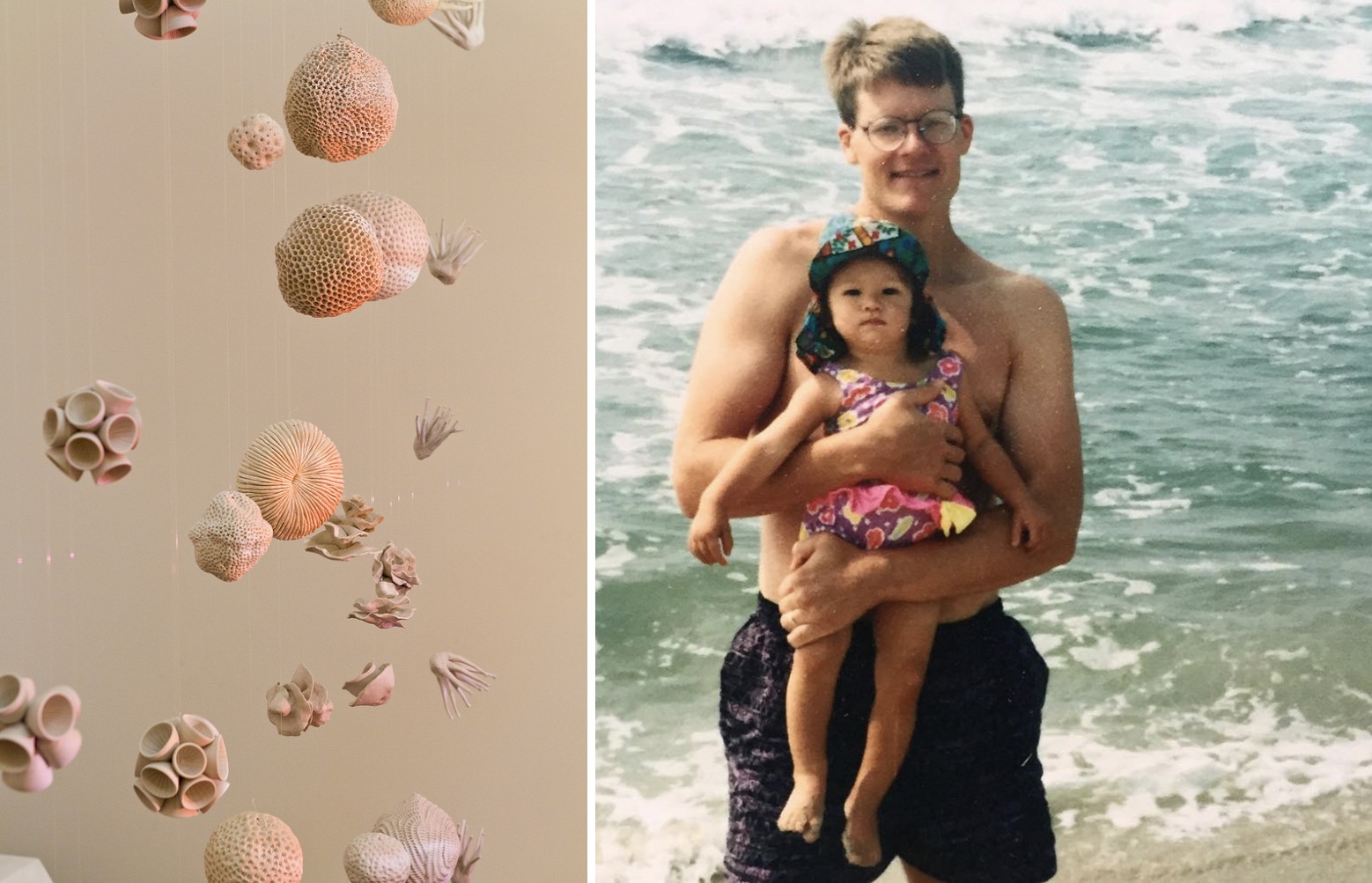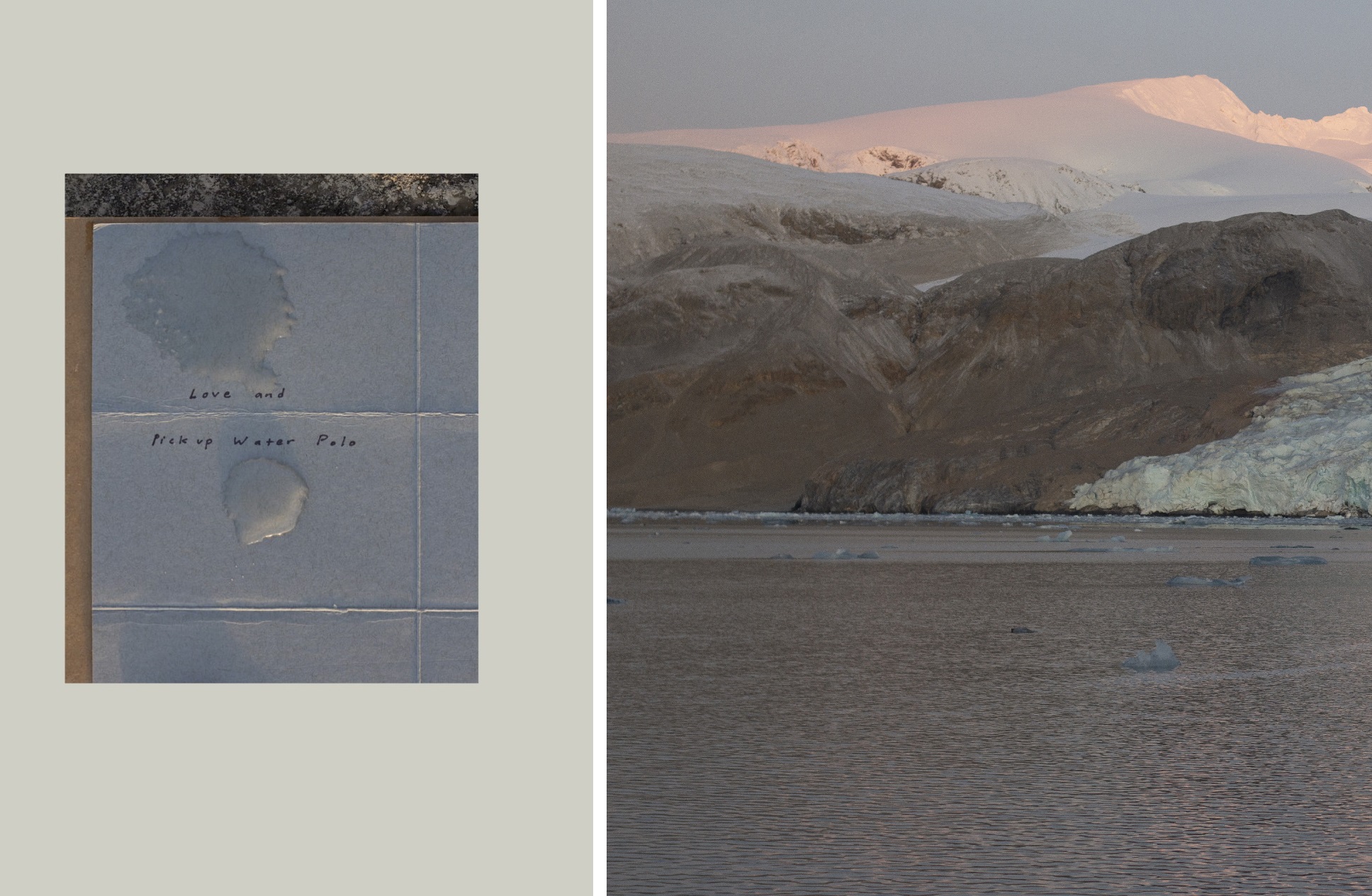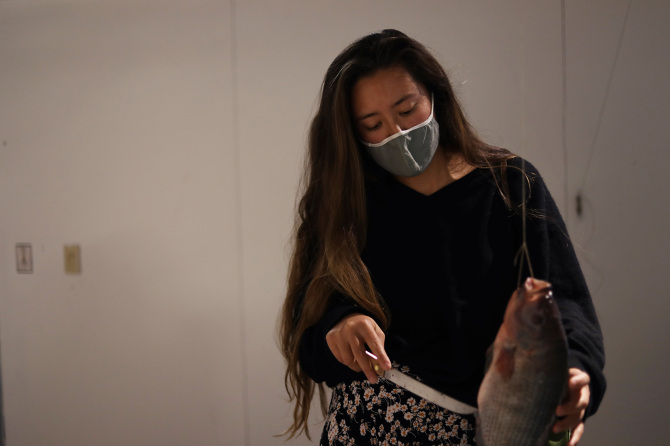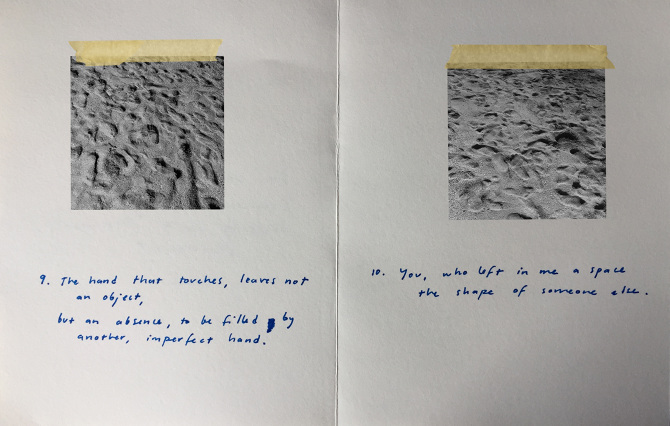
Love, loss, and longing: Ellie Schmidt on relationships to land in climate crisis
By Francesca Du Brock, Chief Curator
Growing up in Denver, Colorado, to a first generation Chinese-American mother and a father with family roots on the East Coast, artist Ellie Schmidt’s formative experiences were shaped by idyllic summers spent exploring the marine landscape of the Atlantic Coast, and by her mother’s love and fiercely protective parenting. Much of Schmidt’s work continues to untangle her relationship to these two poles: the bonds of familial love and intimate relationships, as well as her understanding of the ocean and the natural world in the era of climate crisis.
Although she knew she wanted to be an artist from a young age, it wasn’t until studying marine biology in Australia as a college student that Schmidt discovered her deeper purpose. Confronted firsthand with the harsh reality of coral die-off in the world’s most celebrated reef ecosystem, she felt galvanized towards greater activism with her artwork. She describes this moment as the seed of future projects that would seek to articulate failures of communication between humans and the natural world and explore a sense of loss stemming from climate change and wildlife depletion.

LEFT: Underwater Vertigo. Interactive installation, porcelain, fishing line, and projected video. 2014. Photograph by Joanne Bouknight.
Right: Schmidt and her father Charlie in Massachusetts, circa 1995. Photograph by Nanci Lee.

Images from Love and Loss in the Arctic. Zine. 2019. Photographs by Ellie Schmidt.
After college, Schmidt moved to Sitka, Alaska, where she worked as a commercial fishing deckhand for five years. During that time, her work “became less about spreading a certain message or changing a certain policy” and more about finding ways art can help engender compassion, understanding, and mutuality. Although she created two short documentary films on specific fisheries issues in Sitka, the vast majority of her work occupies a decidedly more poetic realm. By working in this way, she sees her art as a tool for “helping culture change happen,” envisioning new ways of relating to the natural world and to each other.
Schmidt uses her relationship with her mother as a lens for plumbing some of her most pressing existential concerns. Her mother’s over-protectiveness, inflected by her own early childhood losses and difficult upbringing, provide a point of entry for understanding the emotional valences of climate collapse. Schmidt says that on some level, “all of my work is about my mom.” Citing another of her major influences, ecological philosopher Joanna Macey, Schmidt paraphrases: “She said something about grief and sitting with the land the way you would sit with a dying parent and listen to the stories and remember the stories.” Part of Schmidt’s art practice involves transposing interpersonal dynamics and emotions tied to some of her most intimate relationships onto the landscape. Sometimes, she says, “we don’t have the language to talk about what our relationship to the landscape is like—we have to reinvent the language.” She finds parallels between her mother’s urge to constantly protect and shield and her own complicated emotions as she confronts the losses wrought by climate change.

Girls. Acrylic and pastel on paper. 2019.

Cut Fish. Interactive installation with walleye, twine, fishing knives, projected video. 2020. Photograph by Ellie Schmidt.
Although she works across a variety of media including film, performance, graphic novel, and participatory installation, for Schmidt, writing is the core element that informs and scaffolds all of her projects. Writing is the way she works out and shapes her ideas, and also the way she stays connected with loved ones at a distance.

Excerpt from The Only Human Touch I Experienced Today was Stepping in a Stranger’s Footprint. Zine with digital photographs. 2021.
Currently, Schmidt is pursuing a master's degree in fine art at the University of Michigan. For the summer, she’s back in Sitka for research. She’s living on her boat, S/V Sirena, a junk rig schooner that “has Chinese sails and a European hull,” a perfect mirror of her own cultural heritage. In future projects, she intends to continue examining the ways intimacy and emotion inherent in human relationships inform perspectives on land, place, and climate change. She says she would also like to spend time considering her own identity and making work about her family’s journey from China to the U.S. and the stories of travel and “searching for belonging in a strange place.”

On the S/V Sirena, Schmidt’s home and snorkel mobile. Photograph by Berett Wilber in 2020.
Header image: Water Correspondences, interactive installation with bathtub, aquarium, water, zines, pillows, and projected video. 2021. Art by Ellie Schmidt and Rey Jeong. Photograph by PD Rearick.